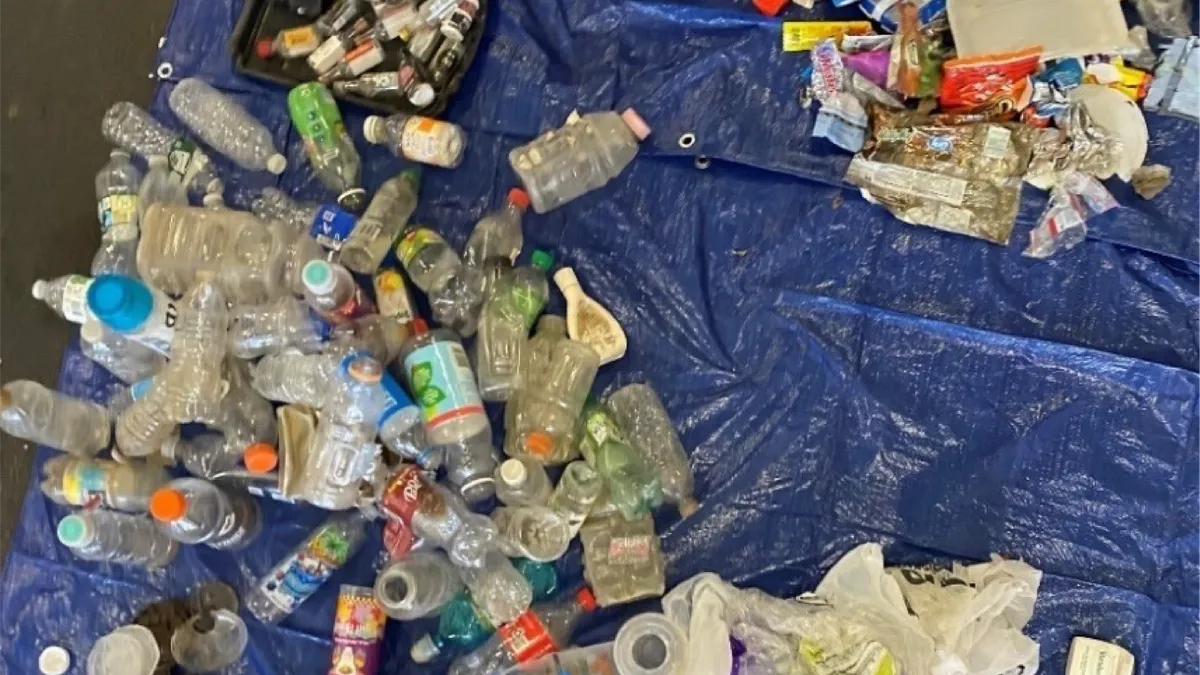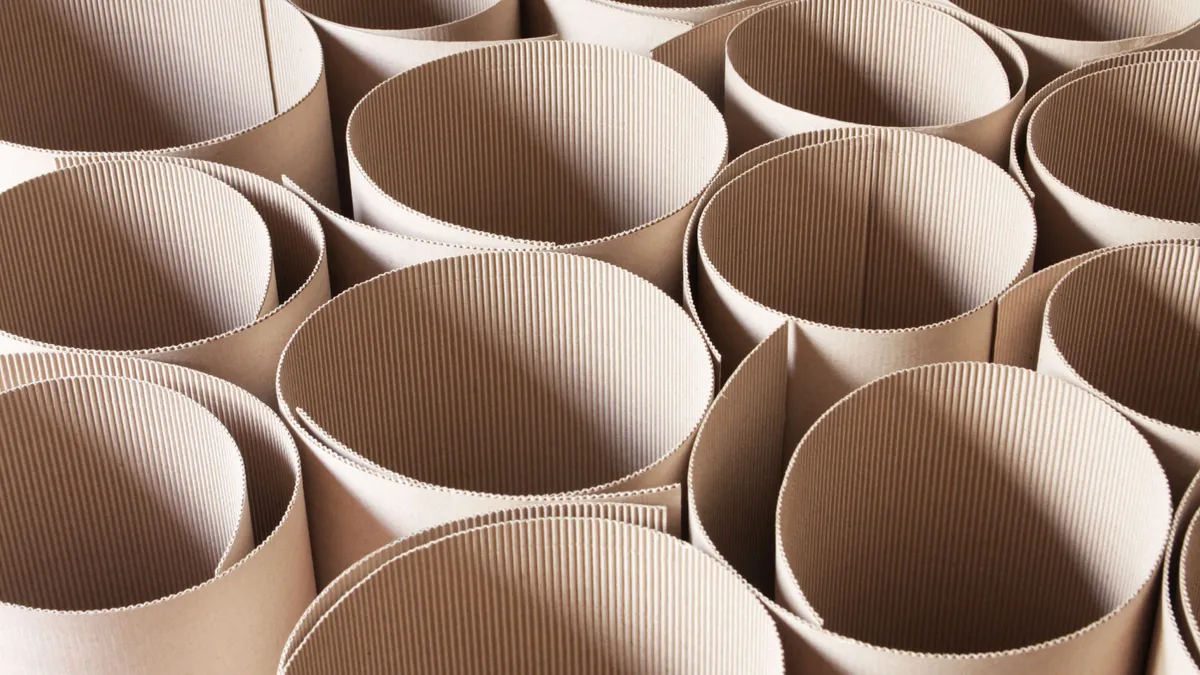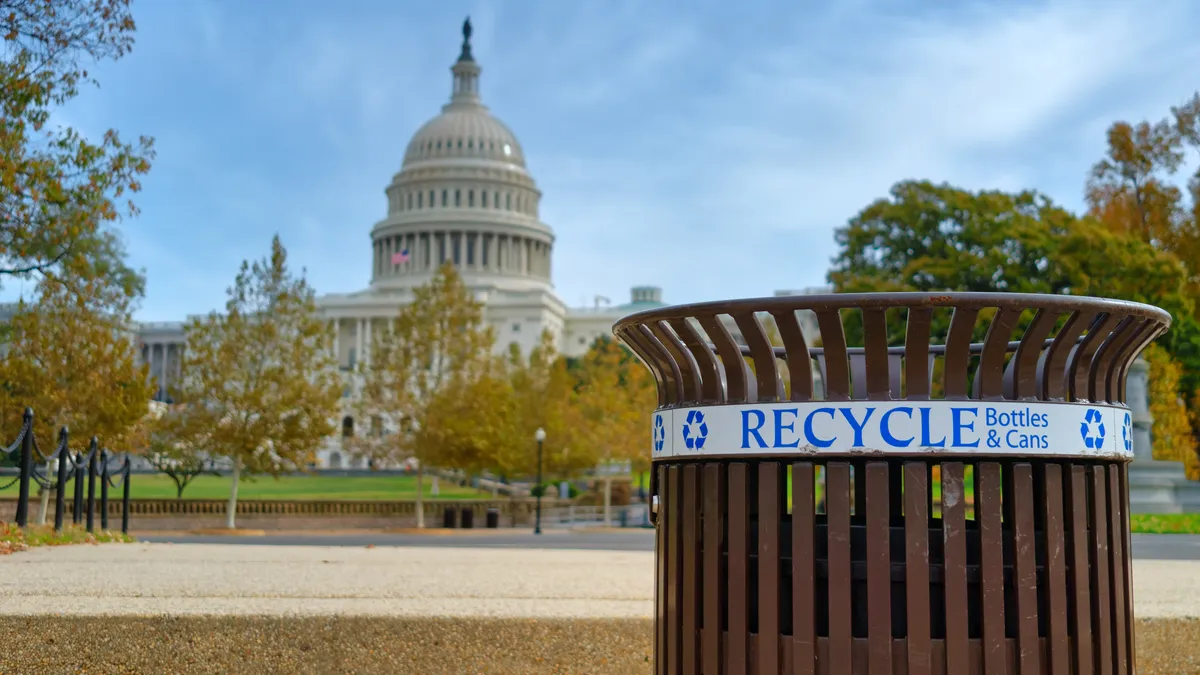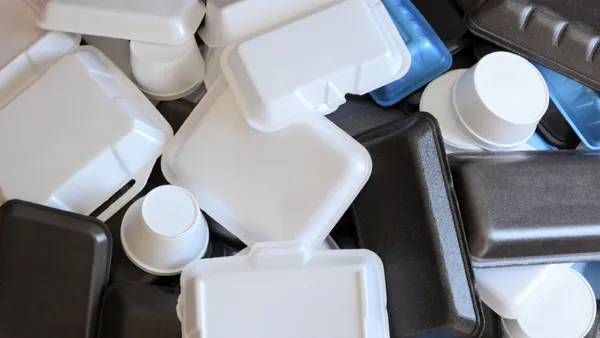Dive Brief:
- New York Attorney General Letitia James on Wednesday sued PepsiCo for allegedly “harming the public and the environment with its single-use plastic packaging.” The Office of the Attorney General cites litter collection data showing that single-use plastic from PepsiCo products contributes significantly to plastic pollution along the Buffalo River.
- The lawsuit, which names PepsiCo, Frito-Lay and Frito-Lay North America as defendants, seeks to stop the sale and distribution of products with single-use plastic packaging in the region that do not contain “an adequate warning.” It seeks to hold PepsiCo accountable for remediating contamination and taking steps to reduce plastic packaging entering the Buffalo River. It further seeks civil penalties, disgorgement and restitution.
- “PepsiCo is serious about plastic reduction and effective recycling, and has been transparent in our journey to reduce use of plastic and accelerate new packaging innovation,” a PepsiCo spokesperson said in a statement. “This is a complex issue and requires involvement from a variety of stakeholders, including businesses, municipalities, waste-reduction providers, community leaders and consumers.”
Dive Insight:
This move by the New York AG comes amid increasing attention to plastic packaging at the state, federal and international level.
New York state lawmakers tried and failed to pass an extended producer responsibility for packaging bill this year. A bottle bill expansion also failed to advance.
PepsiCo, which is headquartered in New York, said in its statement it has advocated for New York bottle bill improvements and extended producer responsibility bills. “We have worked effectively with a variety of communities across the country and remain committed to doing so,” the spokesperson said via email.
Filed on America Recycles Day, the lawsuit details single-use plastic beverage bottles, bottle caps and snack food wrappers found on the shores of the Buffalo River, and declares that “PepsiCo is the single largest identifiable contributor to this plastic waste.”
It includes findings from a 2022 OAG-led survey showing that of 1,916 pieces of plastic waste containing an identifiable brand, 328 items, or 17.1%, came from PepsiCo products. The survey data was collected at 13 sites along the shores of the Buffalo River and its tributaries. This “far exceeded any other source of identifiable plastic waste,” and was three times more abundant than the study’s number-two offender McDonald’s, according to the lawsuit.
The lawsuit also cited data from a 2018 to 2022 study by Break Free From Plastic that looked at 2,373 collections across the U.S., in which PepsiCo was the second-most-found producer of branded plastic waste from 2018 to 2020, and the top one from 2020 to 2022.
PepsiCo’s packaging “fails to warn the public or consumers of its potential to contribute to plastic pollution in waterways and fails to warn the public or consumers of the potential harms caused by its packaging,” the complaint states. The lawsuit describes how plastic pollution contaminates drinking water, with microplastics spurring adverse health effects in humans and governments and other organizations shouldering costly cleanup efforts.
The lawsuit describes “misleading statements” around plastics recycling and a circular economy for plastic. PepsiCo “has misled the public about its efforts to combat plastic pollution, while increasing its production and sale of single-use plastic packaging,” the complaint alleges. “Year after year, PepsiCo touts ineffective solutions and lofty goals that have repeatedly failed to materialize.”
PepsiCo’s 2030 goals call for reducing the absolute tonnage of virgin plastic from non-renewable sources by 20%, from a 2020 baseline. PepsiCo reported this year an 11% increase on that metric. In addition, PepsiCo aims for 50% of plastic packaging to be made from recycled content; the company was at 7% in 2022.
The OAG referenced that goal in taking issue with PepsiCo’s target-setting and reporting practices.
The complaint says that in 2019, PepsiCo announced a target to reduce the total amount of virgin plastic used in its plastic beverage bottles by 35% by 2025, from a 2018 baseline. Two years later, virgin plastic in beverage bottles rose by 5%, the complaint states.
Then, “PepsiCo simply changed the target without fundamentally changing its practices.” It says PepsiCo stopped reporting its progress toward the 2019 target in 2021, “and instead announced a new target of reducing virgin plastic per serving in beverage bottles and convenient foods packaging by 50% by 2030,” with a 20% reduction in total virgin plastic in plastic packaging, from a 2020 baseline. PepsiCo said in its most recent ESG report that it “remeasured the 2020 baseline to reflect the divestiture of Tropicana and to include additional data.”
The lawsuits also says that PepsiCo has announced refillable and returnable glass and plastic in certain international markets, but “has chosen not to deploy these alternatives to any significant degree in the New York market.”
The OAG also invokes the Green Amendment, which New York voters approved in 2021, stating that “Each person shall have a right to clean air and water, and to a healthful environment.”
Former U.S. EPA Regional Administrator Judith Enck, who serves as president of the nonprofit Beyond Plastics, described the move as “an unprecedented and much needed lawsuit.”
“I call on other Attorneys General to consider similar lawsuits to protect scores of other rivers around the nation that are impacted by plastic pollution,” Enck said in a statement.
Plastics and litter issues have inspired multiple government lawsuits in recent years. State attorneys general in Minnesota and Connecticut filed lawsuits last year against Walmart and Reynolds Consumer Products over “recycling bags” they say were falsely marketed, given the bags themselves are not recyclable. Similarly, California’s attorney general has gone after plastic bag producers that claim their products are recyclable.
And last November, the city of Baltimore sued tobacco products companies Philip Morris, Altria Group and others to recover costs related to cleanup and disposal of cigarette filter litter in the city, in what Mayor Brandon Scott it described as a first-of-its-kind lawsuit.













